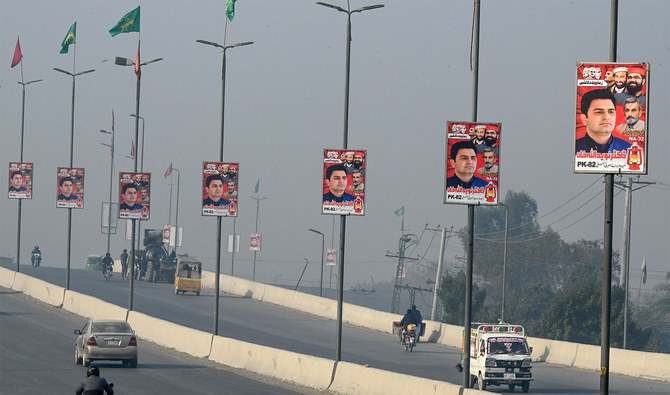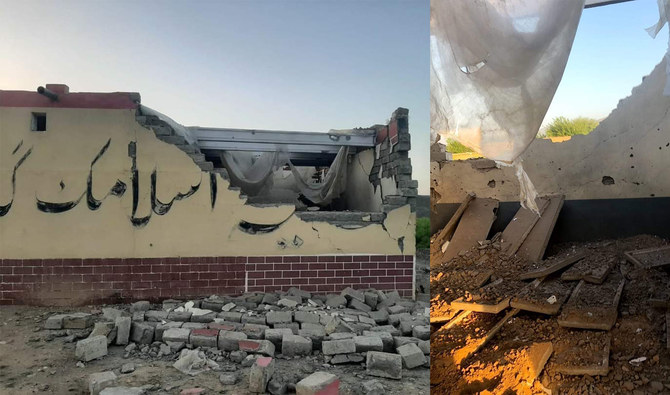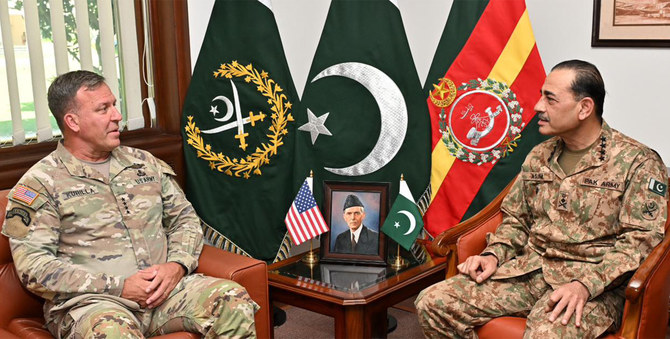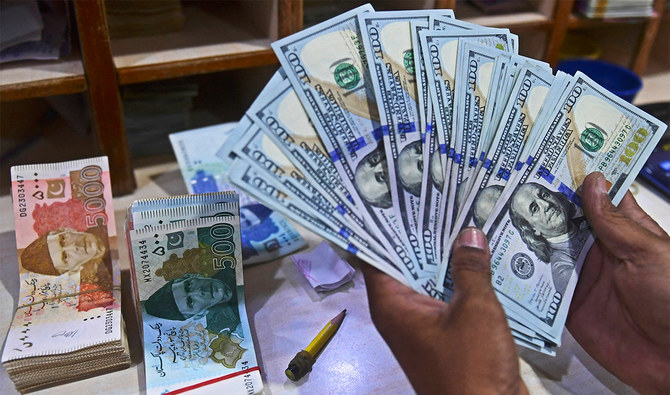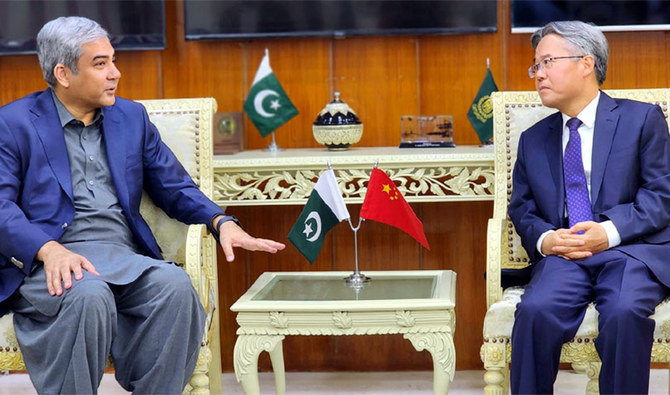ISLAMABAD: Authorities in militancy-hit northwestern Khyber Pakhtunkhwa (KP) province will ensure a plan with “stringent” security measures is in place for upcoming national polls, officials said on Wednesday, as Pakistan gears up for national polls amid surging militant attacks.
KP, which shares a lengthy border with neighboring Afghanistan, has suffered a surge in militant attacks since the Taliban seized power in Kabul in August 2021. The Pakistan Taliban, or the Tehreek-e-Taliban Pakistan (TTP) have mounted attacks in KP ever since a fragile truce between the state and the TTP broke down in November 2022. Pakistan alleges the militants launch attacks against it from sanctuaries in Afghanistan. Kabul strongly denies the allegations.
The violence surged in 2023, with the Islamabad-based think tank Pakistan Institute for Conflict and Security Studies (PICSS) saying that 2023 saw a “distressing” 93 percent increase in suicide attacks in Pakistan. The highest number of suicide attacks, 23, took place in KP.
Kaleemullah Dawar, who was contesting polls as an independent candidate, was gunned down with two others on Jan. 10 in the North Waziristan tribal district. The incident stoked fears of polls slated for Feb. 8 in KP being marred by violence and bloodshed.
“Tribal areas are now part of KP, we have held back-to-back meetings with all concerned departments, including security officials, to work out an extensive plan to ensure stringent security measures in this challenging environment,” Shamshad Khan, KP’s provincial election commissioner, told Arab News.
“We have completed meetings for the deployment of police and other security officials to maintain order during election days,” the ECP official added.
Shehzada Kaukab Farooq, KP Police director for public relations, said security was already on “high alert” in the province. He said authorities were also giving final touches to an elaborate plan through which thousands of security personnel would be deployed to ensure safety of the voters.
“An estimated 115,000 police, Frontier Constabulary (FC) and other security personnel will be deployed to protect polling stations and voters,” Farooq told Arab News.
“Security forces will be posted in areas and polling stations categorized as most sensitive and sensitive by the Election Commission of Pakistan.”
KP-based political parties, such as the Awami National Party, (ANP) are wary of the threat posed by militancy in the province. The ANP’s leaders and supporters have suffered deadly attacks at the hands of militants in the restive province.
ANP spokesperson Samar Haroon Bilour cited KP’s deteriorating security as the main issue confronting the province, adding that her party had limited its political gatherings after its prominent leader, Aimal Wali Khan, received death threats.
“Because we’ve been beaten badly (by militants) before in the field, we are now focusing on limiting our political assemblies to secure our workers’ lives,” Bilour told Arab News.
“We are holding corner and indoor meetings to keep our campaigns running.”
Abdullah Khan, managing director and researcher at PICSS, said banned outfits such as Daesh, ISKP, and Baloch separatist groups were a constant threat for political parties and their campaigns.
“KP and Balochistan provinces could experience election-related violence,” he warned.
This week, the provincial government imposed a ban on public gatherings in two districts of the province, Lakki Marwat and Tank, citing security reasons. Ikram Khatana, media officer of the Pakistan Tehreek-e-Insaf (PTI) party, doubted the government’s intentions behind the move.
“In this situation, holding transparent elections is a farce,” Khatana told Arab News, accusing the provincial administration of resorting to pre-poll rigging.
The PTI, founded by jailed former PM Imran Khan, has accused the military, the caretaker administration and Pakistan’s election regulator of colluding to keep him and his party away from polls. All three strongly deny the allegations.
Jalil Jan, the spokesperson for the Jamiat Ulama-e-Pakistan Fazl (JUI-F), told Arab News his party has repeatedly expressed reservations about the worsening security situation as polls approach.
JUI-F chief Maulana Fazl-ur-Rehman this month asked the government to delay polls due to the worsening security situation in the province. His demand came after a JUI-F convoy last month was attacked by unidentified gunmen on the Islamabad-DI Khan motorway
However, Jan said the JUI-F would participate in the democratic exercise despite threats to the party.
“Provide us an environment under which our leaders and voters can go for canvassing and voting in a fear-free environment,” Jan said.
Abdullah Khan acknowledged the surge in militancy was a matter of “significant concern” for political parties as polls approach.
“Target killings, suicide attacks, and improvised explosive devices-like tactics against candidates and political workers remain a matter of significant concern,” he said.



